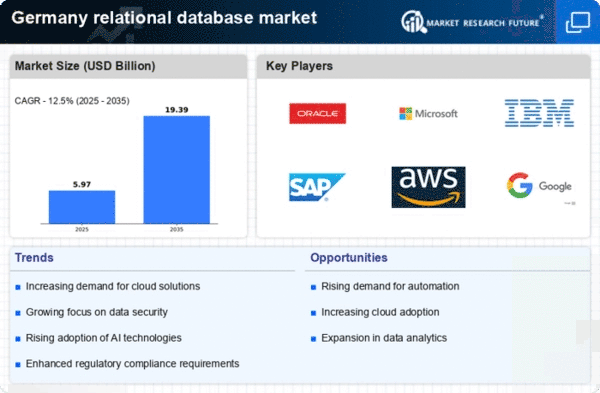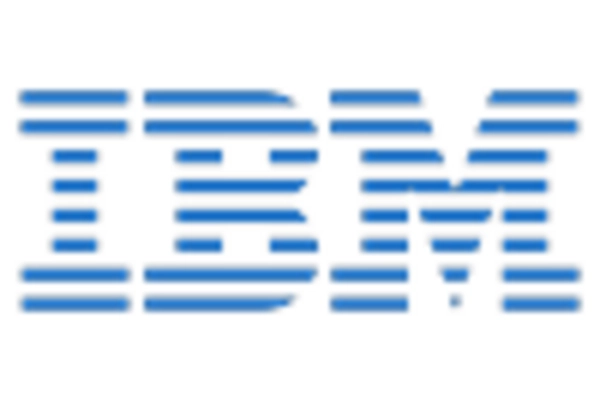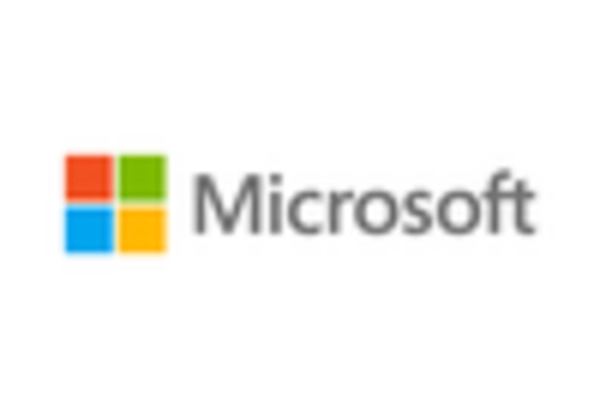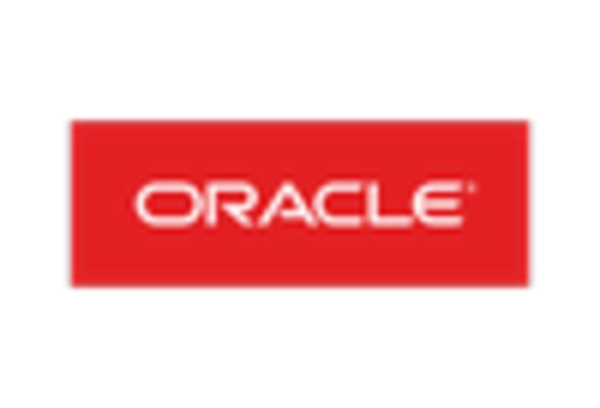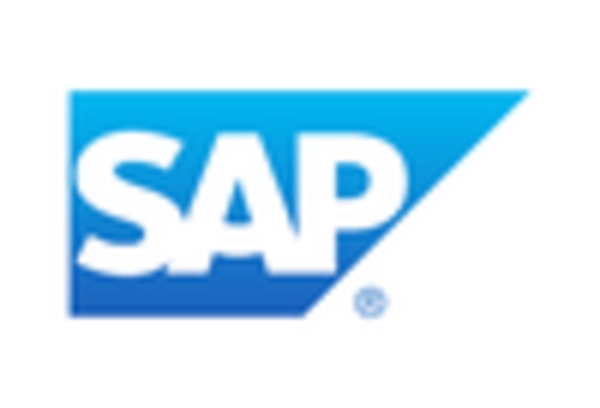Rising Demand for Data Analytics
The increasing emphasis on data-driven decision-making is propelling the relational database market. Organizations in Germany are recognizing the value of data analytics for gaining insights and enhancing operational efficiency. As a result, the demand for relational databases, which facilitate structured data storage and retrieval, is on the rise. According to recent statistics, the analytics market in Germany is projected to grow at a CAGR of 12% from 2025 to 2030. This growth is likely to drive investments in relational database technologies, as businesses seek to leverage their data for competitive advantage. The relational database market is thus positioned to benefit from this trend, as companies require robust database solutions to support their analytics initiatives.
Regulatory Compliance Requirements
In Germany, stringent data protection regulations, such as the General Data Protection Regulation (GDPR), are influencing the relational database market. Organizations are compelled to adopt relational database solutions that ensure compliance with these regulations. This has led to an increased focus on data governance and security features within relational databases. Companies are investing in technologies that provide audit trails, data encryption, and access controls to meet compliance standards. The relational database market is experiencing growth as businesses prioritize solutions that not only store data but also protect it in accordance with legal requirements. This trend is expected to continue, as regulatory scrutiny intensifies.
Shift Towards Hybrid IT Environments
The transition to hybrid IT environments is reshaping the relational database market landscape in Germany. Organizations are increasingly adopting a mix of on-premises and cloud-based solutions to optimize their IT infrastructure. This shift allows for greater flexibility and scalability, enabling businesses to respond to changing demands. As a result, relational databases that can seamlessly integrate with both environments are in high demand. The relational database market is likely to see a surge in solutions that support hybrid architectures, as companies seek to balance performance with cost-effectiveness. This trend is indicative of a broader movement towards modernization and digital transformation within the German market.
Increased Investment in Digital Transformation
The ongoing digital transformation initiatives across various sectors in Germany are significantly impacting the relational database market. Organizations are investing heavily in technology to enhance their digital capabilities, which includes upgrading their database systems. This investment is driven by the need to improve operational efficiency, customer engagement, and innovation. The relational database market is likely to benefit from this trend, as companies seek modern database solutions that align with their digital strategies. Reports indicate that spending on digital transformation in Germany is expected to reach €100 billion by 2026, further fueling the demand for relational databases that support these initiatives.
Growing Importance of Real-Time Data Processing
The need for real-time data processing is becoming a critical driver for the relational database market in Germany. Businesses are increasingly relying on real-time insights to enhance customer experiences and streamline operations. This demand is pushing organizations to adopt relational databases that can handle high-velocity data streams efficiently. The relational database market is responding by developing solutions that support real-time analytics and transaction processing. As industries such as finance and e-commerce prioritize speed and accuracy, the adoption of advanced relational database technologies is expected to rise. This trend highlights the evolving nature of data management in a fast-paced business environment.


